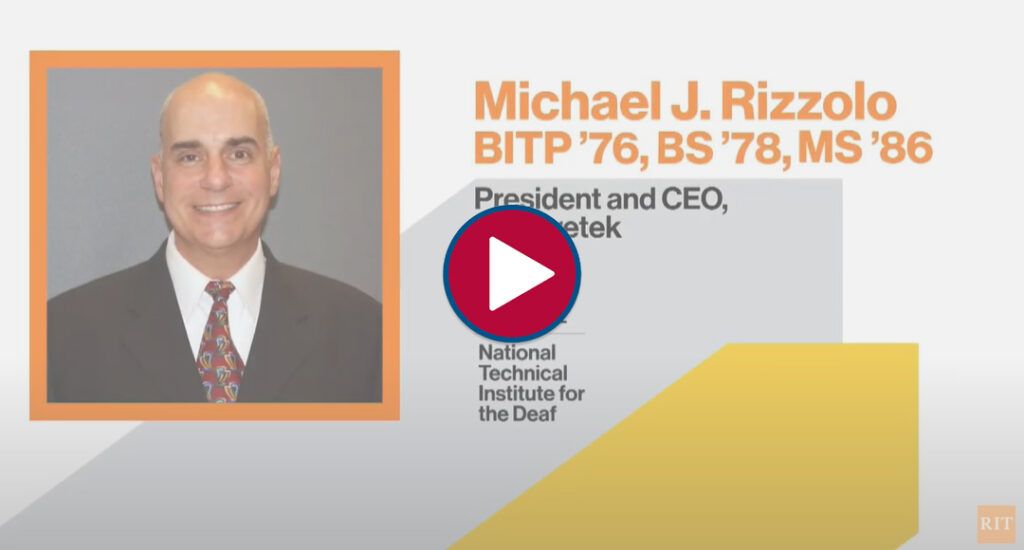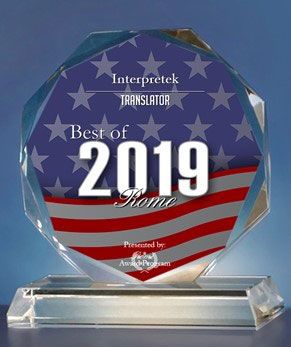
The Case for Using a Certified Deaf Interpreter
The Case for Using a Certified Deaf Interpreter

For many in the Deaf and hard of hearing community, working with interpreters is a significant part of their reality—in medical, legal, professional, educational and even entertainment settings. So imagine the relief they feel when their interpreter communicates with the same signs, expressions and understandings that they use with their Deaf friends and family. And imagine all that could go wrong if a less qualified interpreter was relied upon for say, a critical medical or legal situation.
Generally, the interpreters who are understood most clearly by Deaf people are interpreters who themselves are Deaf. Those who meet the rigorous standards of the Registry of Interpreters for the Deaf (RID) become Certified Deaf Interpreters, or CDIs, and in the world of American Sign Language (ASL) interpreters, they possess a particularly valuable skillset. (Indeed, the same can be said for many working deaf interpreters who are on the path to becoming certified.)
None of this is meant to diminish certified hearing interpreters, many of whom are deeply immersed in Deaf culture and perform admirably. More likely than not, though, they will be among the first to recognize when a particular situation is best served by a CDI—and proactively recommend engaging one.
The Value of the CDI
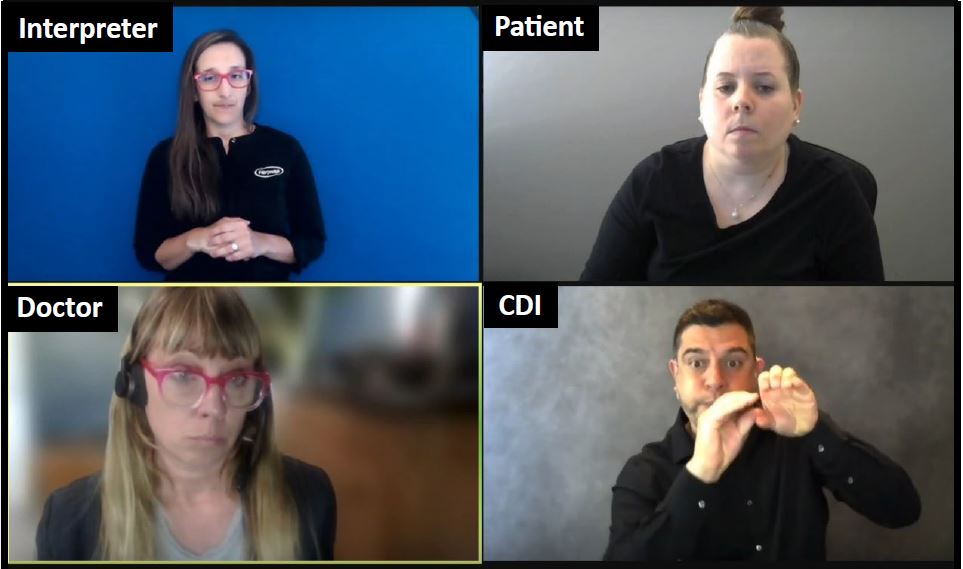
What the CDI brings, in addition to excellent general communication skills and training as an interpreter, is extensive knowledge and understanding of deafness, the Deaf community and Deaf culture. A CDI is a language specialist who is able to navigate and mediate the inherent differences between the hearing and Deaf communities, while enhancing the accuracy, meaning, and effectiveness of the interpretation. In turn, the Deaf consumer recognizes that they’re not the only Deaf person in the room—that the CDI lives a similar life and can appreciate their perspective. These factors help establish trust and give the CDI a solid connection to the Deaf consumer.
Recommending a CDI isn’t always easy, however, because in most cases, the CDI needs to work in tandem with a hearing interpreter, adding to the cost. Still, the benefits CDIs deliver aren’t easily dismissed. With CDIs, all parties are more likely to reach optimal understanding, including clarification of any linguistic or cultural content. Time and resources are applied efficiently. A clear conclusion and agreement is more likely to be achieved.
Costs savings can be a factor as well, particularly in medical and legal situations, by limiting the potential for added costs down the road if poor communications adversely affect decision-making.
How CDI’s Work
When they work together, the CDI and the hearing interpreter provide a two-person communications chain between a Deaf person and a hearing person. At a doctor’s appointment, for example, the Deaf patient signs to the CDI, who then signs to the hearing interpreter, who speaks to the doctor. The chain is reversed when the doctor speaks. It looks like a message relay, but it’s more than that. Each interpreter processes the message linguistically and culturally, then passes it along in the ways that are most appropriate to the respective consumers.
The two interpreters also support one another, serving as a second set of eyes or ears to monitor accuracy and, in particularly challenging cases, conferring to arrive at the best possible interpretation. By taking turns, they also reduce mental fatigue, which can lead to errors. Indeed, some states require at least two interpreters team up to work certain legal proceedings for these very reasons.
When to Engage a CDI
CDIs bring optimal interpreting skills to any situation, but they are especially valuable when:
- The proceedings may have a profound impact on the Deaf person’s life, such as in medical appointments and legal hearings.
- The Deaf person uses something other than standard ASL to communicate, such as a foreign sign language or nonstandard signs that are unique to a family (“home signs”), region, ethnic group or age group.
- The Deaf person also has other challenges, such as vision impairment, or limited educational background or communications skills.
- A broadcast or presentation seeks to reach a wide audience of Deaf people with different backgrounds and signing customs.
- The situation becomes emotionally charged, as can happen, for example, in encounters with law enforcement.
Challenges remain. We don’t have enough CDIs to meet demand today, and until this year, the RID had a multi-year moratorium on certifying Deaf interpreters while they revised the requirements. With the new certification process in place, we expect more Deaf people to be entering the field.
And while CDI acceptance has been growing steadily over the last two decades, we still encounter objections, so efforts to educate interpreter decision-makers must continue. To that end, the best arguments in the CDI’s favor are the examples of the CDIs themselves, who every day bring the highest level of ASL interpreting to tasks large and small throughout the nation.
About the Author
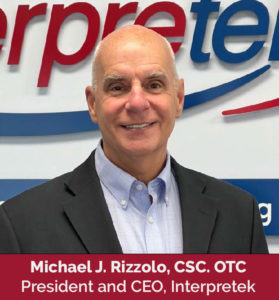
Michael recognized the need for an interpreter referral agency that valued consumers and interpreters alike and founded Interpretek in 1993. The company quickly earned a sound reputation nationwide for outstanding quality and high ethical standards. In 2019 Michael received NTID/RIT’s Distinguished Alumni Award for outstanding service to the community.
Contributing to the interpreting profession and supporting the Deaf community are important to Michael as demonstrated by Interpretek’s continuing education curriculum offered to interpreters and by establishing an Endowed Scholarship at NTID/RIT for students pursuing a degree in interpreting.
Michael and his wife Kate, also an interpreter, live in the Rochester area and have three adult sons. Michael is active in a variety of community organizations and best of all, enjoys spending time with his grandchildren.
Michael Rizzolo Honored as a 2019 Distinguished Alumni of RIT
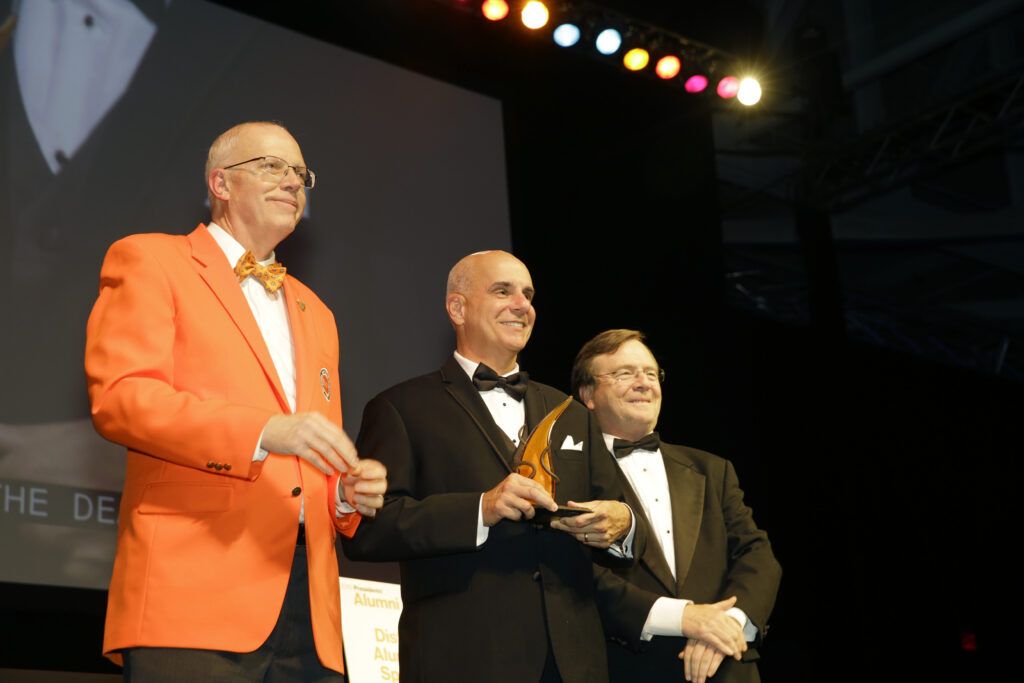
The Distinguished Alumni Awards are presented annually by each of RIT’s nine colleges and the School of Individualized Study to an alumnus/a who has performed at the highest levels of his or her profession or who has contributed to the advancement and leadership of civic, philanthropic or service organizations. It is the highest award an RIT college can bestow upon its alumni. The 2019 recipients were be honored on Oct. 18.
National Technical Institute for the Deaf 2019 Distinguished Alumnus
Michael Rizzolo ’76 (basic interpreter training program), ’78 (social work), ’86 MS (human services management)
President and CEO, Interpretek
What is your favorite RIT memory?
“Meeting the student who later became my lovely bride—Kathleen O’Keefe Rizzolo ’81 (nuclear medicine technology).”
How did RIT help prepare you for success?
“RIT provided both curricular and non-curricular opportunities which allowed me to gain the leadership skills I have used throughout my career. These are the things that, in turn, allowed me to create a successful national company. As an alumnus, I am fortunate to have this connection to a world-class institution and tens of thousands of fellow alumni proud of our common roots and education.”
What is your career highlight?
“My colleagues and I have worked diligently and have overcome many challenges to create a successful service company devoted to promoting high-quality communication access between deaf and hearing citizens throughout the United States and beyond.”
Interpretek Builds Ethical Culture Through Hard Work
Michael Rizzolo, another finalist, is also looking forward to the upcoming gala, where he can, “be with people who seem to embrace value and want to celebrate” ethical behavior in the workplace.
For the president and CEO of Interpretek, the ability to practice sound ethics doesn’t stem from a book or from specific written criteria, but through continued, day-to-day experience.
“It’s just more interpersonal; it happens by doing.”
Interpretek first began in 1993, after Rizzolo had spent 12 years as a manager of Interpreting Services for Rochester Institute of Technology’s National Technical Institute for the Deaf.
“We started with: Send the best interpreter available and pay them on time, and something simple like that rang true with the consumers.”
Now with six offices in five states, Rizzolo is looking forward to celebrating the company’s 25th anniversary, with the Ethie nomination providing an excellent promotional opportunity. Even if they don’t win this year, he views the company ending up on the Ethie shortlist “as having already won.”
“We take away the affirmation that we’ve done well, that we’re doing the right thing. But I don’t think we’re done. The market keeps changing, the needs keep changing; we need to keep changing.”
When it comes to ethical behavior for Rizzolo, the first priority is to his employees. While he places a high value on providing cutting edge services to his customers and clients who require ASL interpreters, he also values a workplace where employees can approach him regarding a potential problem or mistake without worrying about retribution.
“You can’t really make a mistake that’s going to get you fired. That’s silly. If you make a mistake, I want you to learn from it, and then you’re going to be better the next day.”
There’s also a desire for maintaining a strong, effective relationship with the interpreters he hires, since many are independent contractors.
“I hire them, I want the best from them, they want the best from me. It’s a wonderful, mutual relationship. One can’t survive without the other, so you want to maximize it, not minimize it.”
Interpretek also tries to match up interpreters with the situation they are needed for, especially if there’s a requirement for specialized knowledge.
“So, when a request comes in, we don’t just say, ‘who’s available?’ We try to match up. So if it’s a medical request, does this person have medical training and background? If it’s a legal request, can they survive in a courtroom?”
For Rizzolo, the idea is be upfront conducting business, allowing Interpretek to cultivate a strong relationship with the community.
“It’s nice to garner good will from having done the right thing, being ethical,” he says, whether the company is working with employees, contractors or customers.
Our 25 Year Anniversary Celebration!
Thanks so much to everyone who attended our 25th anniversary bash in Rochester on June 29 – it was a wonderful time! We were especially honored to have so many NTID graduates who were in town for the 50th anniversary reunion attend. If you’d like to see photos from the day, please visit our Facebook photo album here.
Interpretek Receives 2019 Best of Rome Award
FOR IMMEDIATE RELEASE
Interpretek Receives 2019 Best of Rome Award
Rome Award Program Honors the Achievement
ROME December 5, 2019 — Interpretek has been selected for the 2019 Best of Rome Award in the Translator category by the Rome Award Program.
Each year, the Rome Award Program identifies companies that we believe have achieved exceptional marketing success in their local community and business category. These are local companies that enhance the positive image of small business through service to their customers and our community. These exceptional companies help make the Rome area a great place to live, work and play.
Various sources of information were gathered and analyzed to choose the winners in each category. The 2019 Rome Award Program focuses on quality, not quantity. Winners are determined based on the information gathered both internally by the Rome Award Program and data provided by third parties.
About Rome Award Program
The Rome Award Program is an annual awards program honoring the achievements and accomplishments of local businesses throughout the Rome area. Recognition is given to those companies that have shown the ability to use their best practices and implemented programs to generate competitive advantages and long-term value.
The Rome Award Program was established to recognize the best of local businesses in our community. Our organization works exclusively with local business owners, trade groups, professional associations and other business advertising and marketing groups. Our mission is to recognize the small business community’s contributions to the U.S. economy.
Interpretek a Finalist in Business Ethics Award
Interpretek is thrilled to announce that we are a finalist in the Rochester Area Business Ethics Foundation’s 2017 ETHIE awards for ethics in business. From RABEF’s website, “the ETHIE recognizes businesses and organizations that do the right thing through strong ethical foundations, aspirations to high standards of business conduct, and the multifaceted nature of ethics in our daily lives. RABEF plans to honor the ETHIE recipients at an awards celebration at Geva Theatre Center on October 2, 2017.”
This is an honor for our company and we are humbled to be considered alongside other great businesses in the Rochester, New York region.
